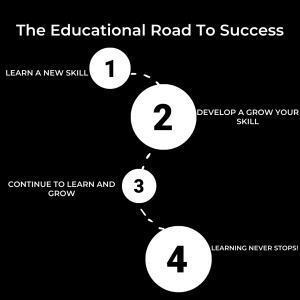How to Nail Your Next Job Interview: Key Strategies for Success
Job interviews can be a daunting experience for many candidates, but preparation is key to success. To nail your next job interview, it is essential to research the company, practice common interview questions, and present yourself confidently. By taking these steps, candidates can greatly improve their chances of making a positive impression.
The initial moments of an interview set the tone for the entire conversation. Candidates should focus on making a strong first impression through appropriate attire and a firm handshake. Body language plays a critical role, as it can convey confidence and enthusiasm about the position.
Throughout the interview, highlighting relevant skills and experiences is crucial. Candidates should prepare specific examples that demonstrate their capabilities, aligning them with the job requirements. This tailored approach showcases their qualifications and makes them stand out to potential employers.
Preparing for Your Interview
Successful interview preparation requires understanding the interview process, researching the company, and practicing common questions. Each of these steps plays a crucial role in building confidence and presenting oneself effectively.
Understanding the Interview Process
To navigate the interview process effectively, candidates should familiarize themselves with the different stages. Interviews often start with a phone screening, followed by in-person or virtual interviews.
Understanding the structure helps candidates prepare specific examples highlighting their skills and experiences.
Additionally, knowing the type of interview—be it behavioral, situational, or technical—allows candidates to tailor their answers accordingly.
Candidates should also be aware of what to expect from interviewers, such as their focus on skills, cultural fit, and potential contributions to the team.
Researching the Company and Its Culture
In-depth research on the company is essential. Candidates should explore the company’s mission, values, and recent news or projects.
This knowledge enables candidates to align their answers with the company’s goals. They should visit the company’s website, review social media accounts, and read employee reviews.
Understanding company culture is also vital. Candidates will find that each organization has unique values and behaviors.
By identifying these aspects, they can assess how their values match, which can greatly influence the interviewer’s perception.
Practicing Commonly Asked Interview Questions
Preparation involves anticipating commonly asked questions and crafting thoughtful responses. Candidates should practice responses to questions like “Tell me about yourself” and “What are your strengths and weaknesses?”
Use the STAR method (Situation, Task, Action, Result) to structure answers effectively. This approach helps demonstrate problem-solving abilities through concrete examples.
Mock interviews can also be beneficial. Practicing with a friend or mentor can build essential confidence and help refine answers.
Recording responses and reviewing can further improve delivery and poise.
Mastering the Interview
Successfully navigating a job interview demands attention to both verbal and non-verbal communication. Projecting confidence, answering questions clearly, and engaging with thoughtful inquiries are essential steps in this process.
Projecting Confidence Through Body Language
Body language plays a critical role in making a positive impression. Candidates should stand tall to convey confidence, maintaining an open posture that invites engagement.
Key aspects include:
- Eye contact: This signals attentiveness and demonstrates interest in the conversation.
- Gestures: Using hand movements can help emphasize points, but these should remain controlled to avoid distraction.
- Facial expressions: A genuine smile can create rapport with the interviewer, making the interaction more personable.
For some candidates, smiling confidently can be challenging due to dental concerns such as gaps, damaged teeth, or missing teeth. Addressing these issues can help individuals feel more comfortable expressing themselves, which is why some people consider cosmetic dentistry and seek care from a dental implant specialist in Beverly Hills to improve both appearance and confidence.
Answering Questions Effectively
Responding to interview questions effectively requires clarity and precision. Candidates should listen intently to each question before formulating their answers.
Strategies include:
- The STAR method: Structure responses by outlining the Situation, Task, Action, and Result. This method ensures a comprehensive answer while maintaining focus.
- Relevance: Tailor responses to the job requirements by incorporating examples from previous experiences that highlight relevant skills.
- Conciseness: Aim to keep answers between one and two minutes long to keep the interviewer’s attention.
Taking a moment to pause before answering can help organize thoughts and present ideas more clearly.
Asking Thoughtful Questions
At the end of an interview, asking insightful questions demonstrates engagement and interest in the role. Candidates should prepare questions that reflect their research about the company and the position.
Examples of thoughtful inquiries include:
- “What does success look like in this role within the first year?”
- “How does the team collaborate on projects, and what tools do you use?”
- “What opportunities exist for professional development?”
Well-prepared questions can help candidates assess if the job aligns with their career goals while also reinforcing their enthusiasm for the position.
Handling Special Scenarios
Job seekers may encounter unique situations during interviews that require specific strategies. Particularly, virtual interviews demand a tailored approach to ensure strong communication and professional presence.
Navigating Virtual Interviews
Virtual interviews are increasingly common, and they present distinct challenges. Candidates should ensure reliable technology, including a stable internet connection and functional audio-visual equipment.
Prior to the interview, conduct a test run to check audio and video settings. Familiarity with the platform being used can aid in reducing anxiety.
For the interview environment, choose a quiet, well-lit area free from distractions. A professional backdrop enhances the visual impression.
Body language remains crucial; candidates should maintain eye contact by looking at the camera, not just the screen.
Lastly, have a digital copy of the resume and any necessary documents organized and accessible to refer to during the conversation.


